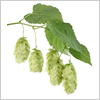Your cart

 Germany: German hop growers facing lower prices and possible farm closures
Germany: German hop growers facing lower prices and possible farm closures
Declining beer consumption worldwide is hurting German hops growers, who face lower prices and possible farm closures amid a dip in demand for the bitter crop, Yahoo Finance reported on November 27.
A strong hops harvest in 2024 means that Germany has regained the crown as the world's top producer of hops, but prices have slid. According to the German Hop Industry Association, 2024 is the 11th year in a row in which more hops were produced than required.
Alpha acid, a natural component of hops, gives beer its bitter taste. In addition to adding flavour and aromas, hops were historically used in beer brewing as a natural preservative that helped prevent spoilage.
Long-term contracts with breweries, who buy about 99% of hops grown in Germany, have helped offset problems for farmers. But if those contracts start to expire in the next few years, hop growers could face further problems.
Good weather helped buoy the 2024 hops crop in Germany, which brought in 46,536 tonnes. The vast majority - about 41,000 tonnes - was grown in Bavarian hops-growing strongholds of Hallertau and Spalt.
Many breweries have already ordered more hops than they can process, with some delaying or cancelling purchases from their quotas, according to Adolf Schapfl, the president of the Association of German Hop Growers.
"In some cases, prices have fallen by 90% in the last two years," said Schapfl. "This makes it impossible to grow hops economically. Many hop-growing families will go out of business as a result."
In the United States, where a trend toward heavily hopped bitter craft beers drove demand for the crop for several years, shifting consumer tastes have also hit hop farmers.
More mild beers with fewer hops are now gaining popularity, and hop acreage in the US has fallen by 18.5% within a year, with just under 40,000 tonnes of hops harvested in 2024.
Thousands of acres of hop garden could be cleared in Germany in the coming years as demand for the crop wanes, according to German Hop Industry Association Chairman Pascal Pirouè.
"It is to be expected that after the 2025 and 2026 harvests, there will also be a significant decline in acreage and farm closures in Europe," Pirouè said at the BrauBeviale beer industry trade fair in Nuremberg on Wednesday.
Pirouè said that he expected 2,000 to 3,000 hectares of Germany's total 20,000 hectares of hop gardens to be lost.
Globally, he sees the potential for adjustment at 5,000 to 10,000 hectares.
Climate change is expected to compound the problems facing hop growers.
Schapfl, the hop farming group leader, said growers will have to change their variety portfolio in future due to higher temperatures and less rainfall.
A shortage of water is a major potential issue for hop gardens, and several pilot projects are underway in the German hop-growing heartlands of Hallertau and Spalt to store excess surface water for summer irrigation.
Schapfl said securing the future of the hop-growing industry will require tackling "generational projects."
Regresar
E-malt.com, la fuente de información global para los profesionales de la industria cervecera y de malteado. Los boletines quincenales de E-malt.com incluyen las últimas noticias de la industria, estadísticas en gráficos y tablas, precios mundiales de cebada y malta, y otra información relevante. Haga clic aquí para obtener acceso completo a E-malt.com. Si usted es un cliente de Castle Malting, puede obtener acceso gratuito al sitio web y publicaciones de E-malt.com. Contáctenos para obtener más información en marketing@castlemalting.com.





